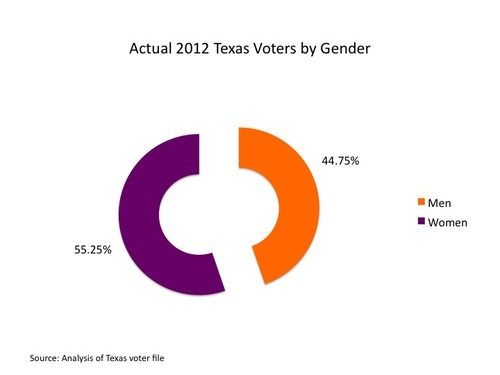
Court to rule again on controversial plan examined in groundbreaking Texas redistricting case
Democracy, elections and voting at Democracy Chronicles
Election Law Blog written by Rick Hasen is a much followed source for election news. In his most recent post, Texas Redistricting Court Sets Hearing to Consider Next Steps in Case, Hasen commented that “Much depends upon whether Section 5 remains valid once the Supreme Court decides the Shelby County case.” For more information on redistricting in Texas, go the website that is based on it. Texas Redistricting is an example of a good blog that is making a difference. Check out this interesting image from their website:

Election Law Blog also had a link to the court order some of which is interesting reading:
ORDER The Court has reviewed the parties’ most recently submitted advisories and any responses thereto, and has determined that a hearing is necessary to address the status of these proceedings and the manner in which this Court may move forward in preparation for the 2014 elections.
While other matters pending before the United States Supreme Court will affect the final outcome of these proceedings, the Court would like to take reasonable steps to prepare for the difficult task ahead. It is therefore ORDERED that the parties appear for a hearing on Wednesday, May 29, 2013 at 9:00 a.m. in courtroom number one on the first floor of the United States Courthouse, San Antonio, Texas, to discuss the following matters: Senate case: It is the Court’s understanding that all parties agree that the 2012 interim plan for the Texas Senate may be implemented as a final court-ordered plan regardless of any future rulings from the U.S. Supreme Court.
The parties should be prepared to enter a stipulation on the record if they so agree. If any party does not agree and will not enter into a stipulation, the objecting party must be prepared to present their argument to the Court. All parties in the Senate case should also be prepared to present a proposed schedule for resolving any other issues such as attorney’s fees and costs. Congressional/House: 1. In the event Section 5 of the Voting Rights Act is upheld, but the Supreme Court does not issue a decision on the appeal of the D.C. case by the end of the current term, it is the Court’s understanding that it will not be able to reach the merits of the claims asserted herein. Instead, the Court will need to proceed with interim plans for the 2014 elections.
To prepare for that scenario, the parties must present oral argument to support the positions stated in their written advisories. If the State contends that the Court may rely on the 2012 interim plans for the 2014 elections without any revisions, it must provide legal authority to justify such action. If the plaintiffs contend the Court could rely on the 2012 interim plans as a benchmark, template or baseline, but with revisions to account for the D.C. Court’s ruling on the Section 5 issues, they must provide legal authority that would support such action.
And fmally, if any party contends that the Court would need to begin anew and create entirely new plans, that party must provide legal authority that would require such action. The parties must also address the legal standard(s) that would apply under the current circumstances in the event the Court must draw new interim maps for the 2014 elections. 2. In the event Section 5 is struck down by the Supreme Court, it is the Court’s understanding that this Court may proceed with addressing the merits of the claims asserted herein.
To prepare for that scenario, the plaintiffs have proposed that they be allowed to supplement the trial record before the Court reaches a decision on the merits. Specifically, the plaintiffs propose that they be allowed to offer certain evidence from the D.C. trial proceedings as evidence on the issues being litigated herein. The plaintiffs further propose that they be allowed to supplement the record with evidence on updated ACS survey data and the impact of the 2012 elections. The State objects to the record being supplemented.
The parties shall confer on these issues and be prepared to present oral argument to support their positions at the upcoming hearing. The parties shall specifically address whether some of the evidence could be presented by written submission, such as designated portions of the D.C. record, or whether the presentation of evidence would require another evidentiary hearing. The Court will hear any concerns regarding scheduling and any other matters that the parties believe must be addressed at this time. It is so ORDERED
Leave a Reply